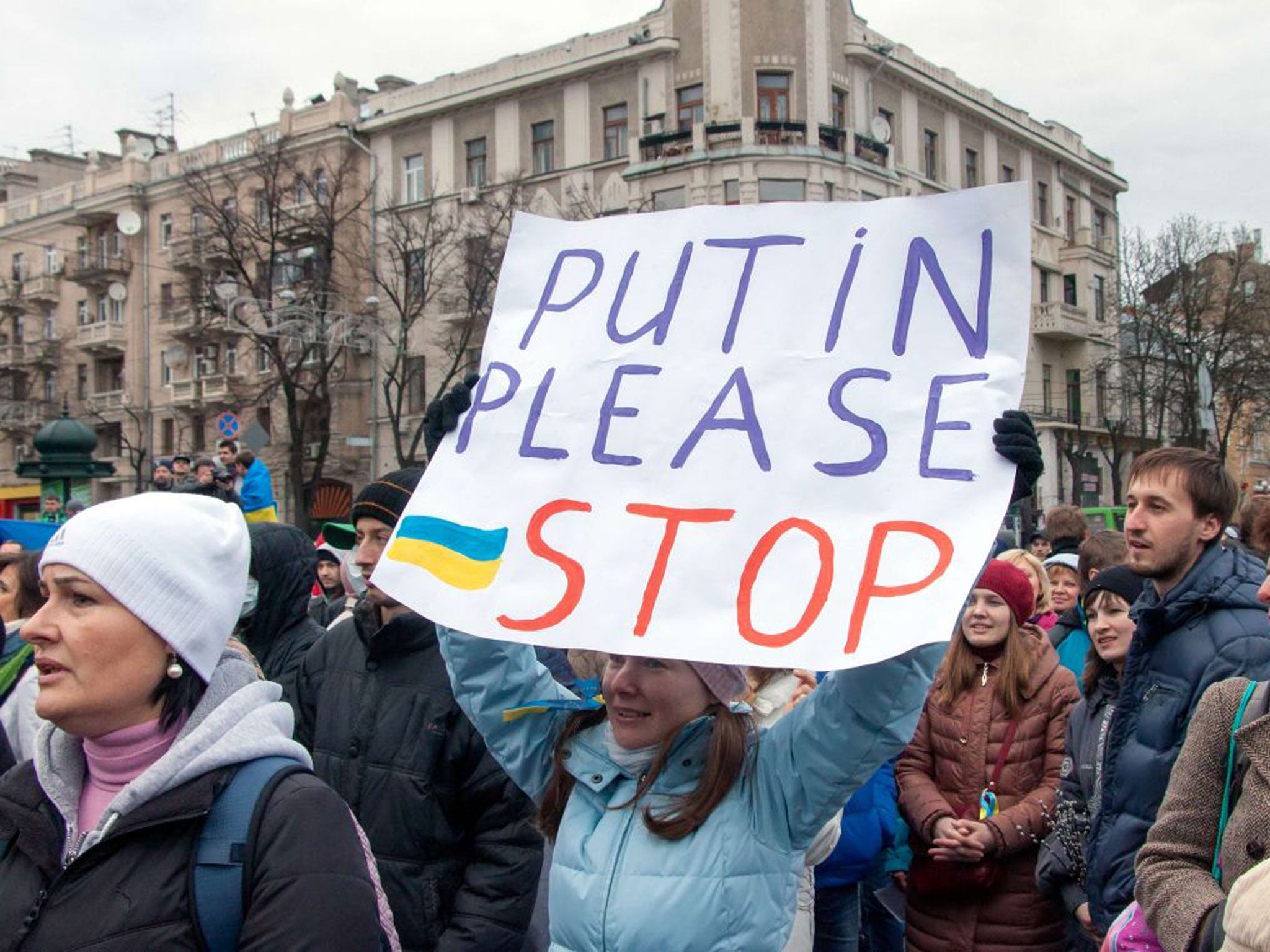Ukraine crisis: Both sides in the conflict lay claim to the truth
It is all too easy to envisage civil war being triggered by mistake


A feature of the Ukraine crisis, ever since the then president, Viktor Yanukovych, rejected the EU’s Association Agreement back in November, has been the huge gap between perceptions on either side.
That applies both within Ukraine, between (broadly speaking) the pro-European west and pro-Russian east; and outside its borders, between Russia and (broadly speaking) the West. What one side accepts as truth is denounced by the other side as propaganda at best, and malicious lies at worst.
But the competing versions have never differed as sharply as they have done since the weekend, after pro-Russian, but unidentified forces seized town halls in several eastern cities and the government in Kiev threatened force to take them back. The existence of these two narratives has created a situation that is as dangerous as anything that has so far happened on the ground. It is all too easy to envisage civil war or invasion being triggered essentially by mistake.
Certainty is a hallmark of each version. Addressing the emergency meeting of the UN Security Council on Sunday – a meeting requested by Russia – the US ambassador, Samantha Power, took it for granted that Russia was behind the disturbances in the east. But, like the many Westerners who take that view, she has nothing more than circumstantial evidence to support it.
Neither did William Hague, the UK Foreign Secretary, when he levelled similar charges. Russian officials and observers meanwhile issue denials – to be met by the West with “Well, they would, wouldn’t they?” None of this leaves much room for negotiation.
It must be hoped officials on both sides are aware of how far not to go. It is hard to have even that degree of confidence, however, in relation to some of the charges being bandied about on Ukrainian and Russian websites and social media. For this, I am indebted to the daily Johnson’s Russia List, a non-profit compilation service provided by David Johnson at George Washington University.
The 30-item menu that arrived in my in-box 24 hours ago exposed how dangerously heated the atmosphere within Ukraine and between Ukraine and Russia has now become.
Here is just a taste: a writer on euromaidanpr.com called on Kiev to threaten a series of moves that would leave the West with no choice but to intervene. Specifically, he said Kiev should give 72 hours’ notice that it would, among other things, destroy all gas pipelines; arm all Ukrainian “patriotic citizens”; remove uranium from Ukraine’s nuclear reactors and disperse it in Russia, and prepare to “flatten” Belgorod (a city on the Russian side of the border).
None other than the acting interior minister in Kiev reported on his Facebook page that there was extensive bloodshed in Slavyansk, which was not in fact true, and that Russia had already invaded. Another report spoke of Russia laying anti-personnel mines in parts of Ukraine.
Each and every one of these reports is incendiary, with the capacity to set off a conflict that would be all the harder to resolve, because of the tissue of lies that gave it birth.
Join our commenting forum
Join thought-provoking conversations, follow other Independent readers and see their replies
Comments
Bookmark popover
Removed from bookmarks